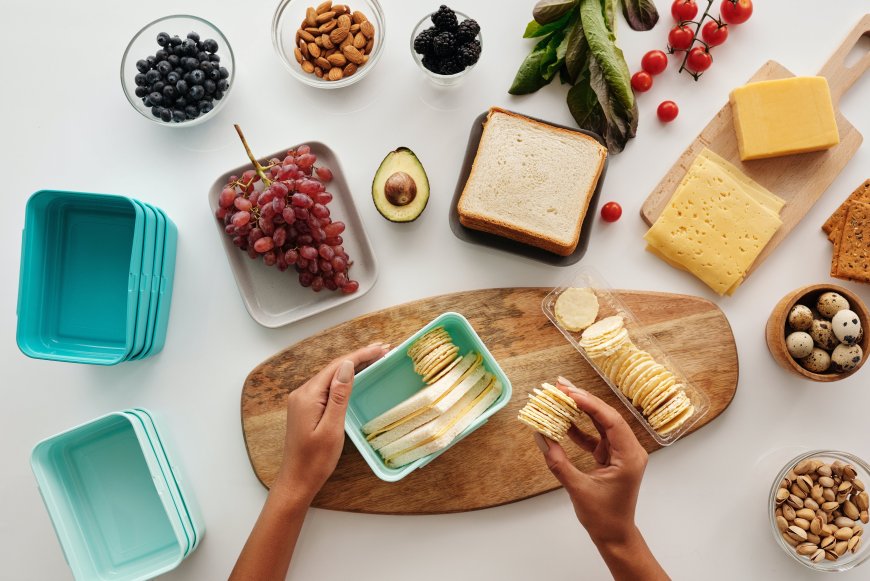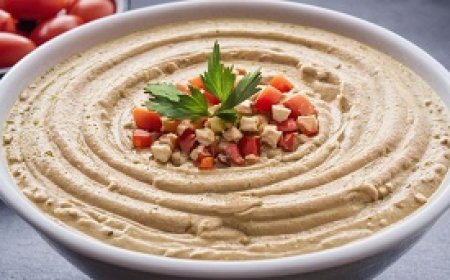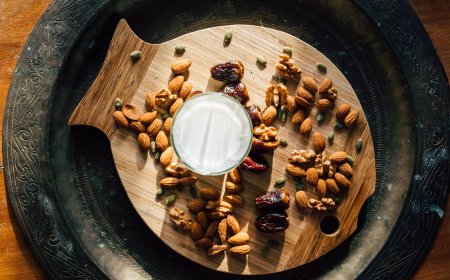How to improve digestion by consuming the right foods
Consuming the appropriate foods that contain dietary fiber and probiotics, in addition to avoiding fatty and processed foods, and eating small meals at regular intervals, can contribute to improving the digestion process and enhancing overall health.

Consuming the appropriate foods that contain dietary fiber and probiotics, in addition to avoiding fatty and processed foods, and eating small meals at regular intervals, can contribute to improving the digestion process and enhancing overall health.
How to improve digestion by consuming the right foods
Dietary fiber is an essential part of a healthy diet and plays a significant role in improving the digestion process and gastrointestinal health. Dietary fiber is found in plants such as vegetables, fruits, and whole grains, and includes various types such as soluble and insoluble fiber. Soluble fiber absorbs water and forms a gel in the intestines, which helps facilitate the digestion process and move waste through the intestines more effectively. Additionally, fiber helps regulate blood sugar and cholesterol levels, which aids in preventing heart diseases and strokes. It is also known that consuming dietary fiber reduces the risk of colon and rectal diseases, such as hemorrhoids and colon cancer. Overall, the benefits of dietary fiber in improving digestion and gastrointestinal health are recognized as key to preventing many digestive and colon-related health issues, making it one of the essential nutrients to include in the daily diet to improve digestion and maintain long-term good health.
The role of probiotics in promoting healthy digestion and reducing digestive problems
Probiotics are types of beneficial bacteria that help promote healthy digestion and reduce digestive problems. These beneficial bacteria are typically provided through supplements or foods rich in them, such as yogurt, kefir, fermented foods, and others. The role of probiotics in improving digestion lies in promoting the natural balance of bacteria in the digestive system, where they help increase the presence of beneficial bacteria like Lactobacillus and Bifidobacterium in the intestines and reduce harmful bacteria. Additionally, probiotics work to enhance the digestion process and absorption of important nutrients, which helps reduce bloating, gas, constipation, and diarrhea. Probiotics are also considered an important part of boosting the immune system in the digestive tract, helping to prevent infections and digestive diseases such as colitis and peptic ulcers. Overall, probiotics are considered an effective tool for improving digestion and maintaining digestive health, and should be included in the diet as part of strategies to improve digestion and prevent digestive problems.
The effect of fatty foods on the digestion process and how to avoid them
The effect of fatty foods on the digestion process involves increasing the burden on the digestive system and slowing down the digestion process. Fatty foods contain high levels of fats, especially saturated fats and unhealthy fats like trans fats, which are considered difficult for the body to digest. Consuming fatty foods frequently may lead to increased secretion of digestive juices in the stomach and pancreas, increasing pressure on the digestive system and delaying the digestion of food. Additionally, fatty foods may lead to increased proliferation of harmful bacteria in the digestive system, increasing the risk of infections and digestive problems such as diarrhea, gas, and bloating.
To improve digestion and avoid the effects of fatty foods on it, it is recommended to reduce consumption of heavy, fried fatty foods and replace them with foods low in fat such as fruits, vegetables, and whole grains. Choosing healthy cooking methods such as grilling or steaming can also help maintain a low-fat content in meals. Additionally, consuming foods rich in dietary fiber and probiotics is preferred, as they help promote digestion and improve gastrointestinal health. By consuming the right foods and avoiding fatty foods, digestion can be improved and overall gastrointestinal health can be maintained.
Improving digestion through consuming small, frequent meals throughout the day
Improving digestion through consuming small, frequent meals throughout the day is an effective strategy for enhancing digestive health and promoting digestion. When small meals are consumed regularly throughout the day, the pressure on the digestive system is reduced, and the digestion and absorption of nutrients are enhanced. Reducing meal size allows the stomach to work more efficiently and facilitates the digestion process, thus reducing the chances of bloating, gas, and discomfort after eating.
Additionally, eating meals at close intervals helps stimulate the digestion process continuously, keeping the digestive system active throughout the day rather than being inactive for long periods between meals. This enhances the secretion of digestive juices and helps move food through the digestive system more quickly.
For best results, small, frequent meals should be balanced and include a variety of nutrients, including proteins, carbohydrates, healthy fats, and fiber. These meals can include fresh vegetables, fruits, nuts, whole grains, and plant-based or animal proteins. By consuming small, frequent meals throughout the day, digestion can be improved, and overall digestive health can be maintained.
The importance of consuming natural, nutrient-rich foods for improving digestion
The importance of consuming natural, nutrient-rich foods to improve digestion lies in their ability to provide essential nutrients needed by the body to maintain digestive health and enhance its function. Natural foods include fresh vegetables, fruits, whole grains, nuts, seeds, and unprocessed plant and animal proteins. These foods are characterized by their natural and balanced nutritional composition of vitamins, minerals, dietary fiber, and active plant compounds that promote digestion and stimulate the digestive process in a healthy manner.
Fresh vegetables and fruits contain high levels of dietary fiber that help promote digestion, regulate bowel movements, and reduce digestive problems such as constipation and bloating. Additionally, vegetables and fruits contain many essential vitamins and minerals for digestive health, such as vitamin C, vitamin A, and potassium.
Whole grains are an excellent source of dietary fiber and other nutrients such as B vitamins and minerals like magnesium and zinc. These nutrients play a crucial role in improving digestive function and supporting the growth of beneficial bacteria in the intestines.
Nuts and seeds are rich sources of healthy fats, proteins, and dietary fiber that promote satiety and improve digestion. Plant and animal proteins help build and repair tissues in the body and enhance the digestion process.
Overall, consuming natural, nutrient-rich foods is an essential part of a healthy and balanced lifestyle, contributing to improved digestion, maintaining digestive health, and preventing many chronic diseases associated with digestion.
How to choose the right foods to promote healthy digestion and avoid digestive problems
For promoting healthy digestion and avoiding digestive problems, it's important to carefully choose foods according to the body's needs and its ability to digest them smoothly. Here are some tips for selecting the right foods:
1. Dietary fiber: Fiber is key to promoting healthy digestion, so include sources of fiber in your daily diet such as fresh fruits, vegetables, and whole grains. Fiber helps regulate digestion and improve bowel movements.
2. Probiotics: Beneficial bacteria in foods like natural yogurt and kefir are an important source of probiotics, which help promote bacterial balance in the digestive system and improve digestion.
3. Healthy fats: Choosing healthy fats such as olive oil, avocado, and fatty fish like salmon can help improve digestion and reduce inflammation in the digestive system.
4. Avoid fatty and fried foods: Fatty and fried foods can weigh down the digestion process and cause digestive problems such as bloating and gas, so they should be consumed in moderation.
5. Avoid trigger foods: Avoid foods that trigger allergies or sensitivities, as they can cause digestive issues such as diarrhea or bloating.
6. Stay hydrated: Drinking plenty of water helps facilitate the digestion process and move food through the intestines more quickly.
By choosing the right foods that promote healthy digestion and avoiding those that may cause digestive problems, you can improve digestion and contribute to maintaining overall digestive health.
Strategies for improving digestion and increasing digestive comfort through proper nutrition
Strategies for improving digestion and increasing digestive comfort through proper nutrition involve a range of factors and dietary habits that can be followed to enhance digestion and improve digestive comfort. Here are some strategies in detail
1. Eat small, frequent meals: Dividing food into smaller meals throughout the day helps reduce pressure on the digestive system and improves nutrient absorption.
2. Dietary fiber: Consuming dietary fiber from vegetables, fruits, and whole grains promotes digestion, helps regulate bowel movements, and reduces constipation and bloating.
3. Probiotics: Consuming foods rich in probiotics such as natural yogurt and kefir enhances bacterial balance in the digestive system and improves digestion.
4. Avoid fatty and fried foods: Reducing consumption of fatty and fried foods helps avoid digestive problems such as bloating and gas and improves digestive comfort.
5. Drink an adequate amount of water: Drinking enough water helps facilitate digestion, alleviate constipation, and maintain intestinal moisture.
6. Avoid potential allergenic foods: Avoid foods that may cause allergies or digestive issues, which may include processed foods or preservatives.
7. Eat slowly and chew thoroughly: Eating slowly and chewing food thoroughly helps improve digestion and reduces the chances of bloating and gas.
By implementing these strategies and following a balanced and healthy diet, digestion can be improved and digestive comfort significantly increased.
Summary
Improving digestion is important for maintaining good health, and this can be achieved through consuming appropriate foods. Dietary fiber, probiotics, healthy fats, small and frequent meals, and focusing on natural foods are effective strategies for enhancing digestion. By choosing foods rich in fiber, promoting bacterial balance, reducing harmful fats, and facilitating digestion, significant improvement in the digestive process and comfort can be achieved.
sources
1. Mayo Clinic - Digestive Health
2. Harvard Health Publishing - How to improve digestion
3. WebMD - Digestive Disorders
What's Your Reaction?

















































































































